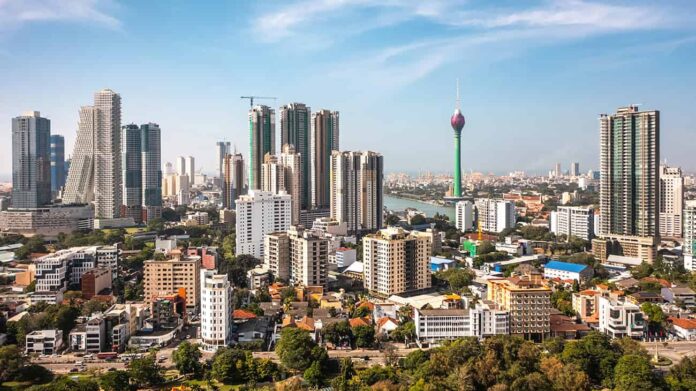By: Staff Writer
September 10 (LNW): Sri Lanka has established a robust regulatory framework to enhance its competitiveness in attracting foreign investments within the Asian region.
The government’s recent enactment of the Economic Transformation Bill marks a significant step toward preventing future economic crises and securing long-term development goals.
This legislation sets clear targets for the country’s growth, ensuring that Sri Lanka will not face similar economic hardships again, according to Dr. Bandula Gunawardena, the Minister of Transport, Highways, and Mass Media.
The Economic Transformation Bill is designed to facilitate rapid national development through both public and private sector initiatives. It mandates adherence to specific targets, setting the stage for substantial structural changes that will enhance Sri Lanka’s economic competitiveness.
The act aims to secure a high standard of living for citizens, with continuous improvements in living conditions and greater access to leisure and cultural opportunities.
A key component of this legislation is its focus on transforming Sri Lanka into a highly competitive, export-driven digital economy. This transformation involves deep structural reforms that are expected to elevate the nation’s economic standing on the global stage.
The bill introduces a comprehensive national policy to achieve this goal, including the establishment of several key institutions such as the Economic Commission of Sri Lanka, Investment Zones, the Office for International Trade, the National Productivity Commission, and the Sri Lanka Institute of Economics and International Trade.
Furthermore, it repeals the Board of Investment of Sri Lanka Law No. 4 of 1978 and related statutes to streamline the investment framework.
The government has set ambitious targets to achieve under this legislation, such as reaching net zero emissions by 2050, integrating more closely with the global economy, maintaining stable macroeconomic balances, and ensuring sustainable debt levels.
Another focus is modernizing agriculture to increase productivity, enhance farmer incomes, and boost agricultural exports, all while promoting inclusive economic growth and social progress.
The Cabinet of Ministers is responsible for ensuring the achievement of these targets, which include a GDP growth rate of 5% annually by 2027, reducing unemployment to below 5% by 2025, and increasing female labor force participation to at least 40% by 2030 and 50% by 2040.
Additionally, the act aims to keep the current account deficit of the Balance of Payments below 1% of GDP annually and increase exports to 25% of GDP by 2025, 40% by 2030, and 60% by 2040.
The government anticipates net Foreign Direct Investment (FDI) to reach at least 5% of GDP by 2030, with 40% of GDP generated from exports of goods and services.
The primary balance of the government is expected to be 2.3% of GDP until 2032, with a target of maintaining at least 2% thereafter. Government revenue is projected to exceed 15% of GDP post-2027, while the multidimensional poverty headcount ratio is targeted to drop below 15% by 2027 and under 10% by 2035.
Minister Gunawardena assured that all necessary economic measures have been taken to transform the fiscal and monetary landscape, indicating that no further reforms are required at this stage. However, there are plans for new legislation and revisions to existing laws, particularly focusing on structural reforms in executive and administrative sectors.
This includes laws on public finance, procurement, public-private partnerships, state enterprises, and offshore economic activities, highlighting the government’s commitment to modernizing governance, transparency, and accountability.
As part of this transformation, three new laws have been enacted to manage finances, debt, and the economy, along with two additional pieces of legislation aimed at combating corruption and streamlining state procurement processes.
These include the Public Financial Management Act, Public Debt Management Act, Economic Transformation Act, Anti-corruption Act, and Public Procurement Act.
Sri Lanka’s legislative transformation is poised to establish the country as a highly competitive, export-oriented digital economy with strong global economic integration, aiming for sustainable development and prosperity in the coming decades.
